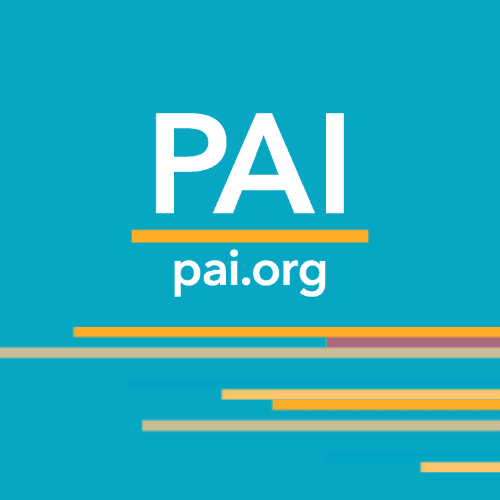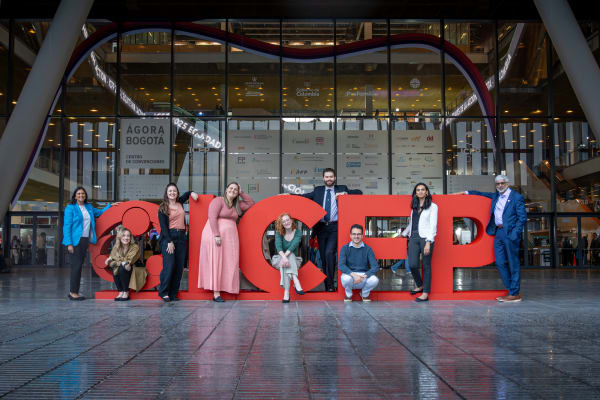Resilience Through Partnership: PAI’s 2025 Year in Review

By Nabeeha Kazi Hutchins, President & CEO, and Mustafa Kudrati, Senior Vice President, Strategy & Growth

Leaving Bogotá, one message from ICFP 2025 stood out clearly: equity through action is now the expectation, not the aspiration. The first-ever Latin America–hosted ICFP showed how Colombia and regional partners are advancing sexual and reproductive health and rights (SRHR) amid political volatility and anti-rights pressure, positioning the region not as a recipient of support but as a source of innovation, resilience, and bold solutions.
The convening also showcased our movement’s greatest strength—its diversity. Scientists, advocates, midwives, policymakers, donors, journalists, private-sector partners, and young leaders brought urgency and expertise, demonstrating that reproductive freedom depends on multidisciplinary action and community-led leadership. Together, this collective energy fueled the sense of resilience and shared purpose that defined the week.
A Moment of Reflection on U.S. Engagement
ICFP 2025 marked the first time in decades that official U.S. political leadership was absent from the proceedings. This is significant because, for generations, U.S. investments and technical leadership have expanded contraceptive access and opened opportunities for millions of women and girls.
Yet while political leaders were not present, the United States was not absent. U.S. academics, scientists, implementing partners, civil society advocates, philanthropies, and youth leaders showed up in force, reaffirming that U.S. commitment to SRHR is broader than the political moment.
The USAID Legacy panel that PAI co-organized highlighted this truth—celebrating the transformative contributions of USAID’s global family planning and reproductive health (FP/RH) workforce and reaffirming the core principles of volunteerism, informed choice, equity, evidence generation, and systems building that have shaped decades of progress. It reminded us that the future of U.S. engagement should be guided by the collective aspirations and lessons of the SRHR community, not by fleeting political headwinds.
Advancing Data, Financing, and Systems That Work for People
A central conversation throughout the week—and in PAI’s Catalyst Session with Philip Anglewicz, Chair of the ICFP Steering Committee—was the fragility and opportunity within the SRHR data ecosystem. Practitioners and advocates emphasized that equity requires data reflecting agency, quality, and lived experience, and warned that weakened data systems make inequities easier to overlook and harder to confront.
The WHO’s new guideline on adolescent pregnancy exemplified how cross-sector collaboration is stepping up, calling for coordinated action across education, health, gender equality, and community engagement, and illustrating how stakeholders are aligning around shared evidence and priorities. The Exemplars in Global Health sessions shared the emerging evidence on the policy, practice, and strategy levers that enable countries like Malawi, Ghana, and Nepal to sustain stellar progress in family planning and adolescent SRHR access.
Financing discussions carried similar urgency. Domestic resource mobilization is rising, but it cannot offset declines in international investments. Cuts to family planning assistance disrupt services, trigger commodity shortages, and overload already constrained health systems. Domestic leadership matters, but global commitments remain essential. Youth leaders reinforced this point, showing how resilience is built through intergenerational partnerships. Their work on SRH access, combating disinformation, advancing climate–SRHR integration, monitoring budgets, and holding decision-makers accountable reflects both the present and future of the movement.
A More Connected Movement
ICFP 2025 reaffirmed that civil society is the connective tissue of the SRHR ecosystem—and PAI helped strengthen that fabric across the week. We co-organized the USAID Legacy Panel; hosted Skill Share sessions on budget advocacy, accountability tools, coalition building, and climate–SRHR integration; and contributed at the Youth Pre-Conference on meaningful participation and feminist leadership.
Our fishbowl session with partners from Latin America and Africa was a powerful moment of cross-regional learning, spotlighting lessons on rights literacy, policy advocacy, community power, and health system accountability. Complimenting lessons learned from our programs and partners in El Salvador, the Dominican Republic, Guatemala, Malawi, Mexico, Peru, and Zambia, the premiere of our new Acceso film amplified the voices of community advocates who embody the impact and promise of enabling access to FP/RH care.
Throughout the week, PAI held dozens of Skill Shares at our booth and strategy meetings with partners, researchers, funders, and government allies—all of which strengthened relationships and forged new partnerships. During the Spotlight session on “Going Beyond the Echo Chamber,” we reinforced the need for broader alliances and deeper engagement with communities most affected by inequity, as well as the importance of bringing new and critical audiences into our tent.
Looking Ahead
ICFP 2025 showed that our movement has the solutions, expertise, and leadership needed to advance reproductive freedom—even amid global uncertainty. What we need now is political courage, sustained financing, and systems that treat SRHR as essential to justice, democratic resilience, and climate adaptation. And as PAI’s booth theme underscored, Fueling Our Resilience is not just a message—it is our strategy. We fuel each other. We learn from one another. We carry each other through uncertainty. And we reaffirm that the future of family planning will be people-powered, not government-defined.
In a time when community is everything, solidarity will carry our movement forward. PAI leaves Bogotá with renewed purpose and a shared mandate: to transform global momentum into country-level action, accountability, and impact. We leave with a commitment to forge partnerships with other sectors—learning to find mutual ground and committing to frame family planning in ways that resonate with their aspirations. We leave knowing that the health of the planet and its people is closely intertwined with people’s ability to determine their reproductive health choices and outcomes. We move forward together—fueling our resilience, every step of the way.
Stay informed about the issues impacting sexual and reproductive health and rights.